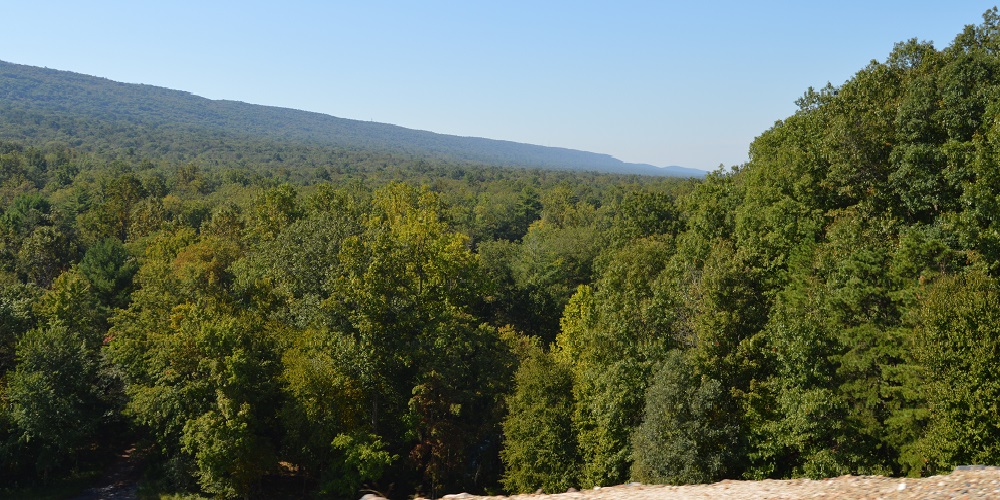 Mari-Beth DeLucia/The Nature Conservancy
Mari-Beth DeLucia/The Nature Conservancy
Capital Region Water’s Board of Directors unanimously approved an agreement to conserve its 8,200-acre DeHart Property in Dauphin County by easement in partnership with The Ward Burton Wildlife Foundation, The Nature Conservancy, and Fort Indiantown Gap.
The 8,200 acre DeHart Property located in northern Dauphin County is the primary source of drinking water for Capital Region Water’s 60,000 plus customers. The DeHart Property includes the five mile long, six billion gallon DeHart Reservoir and 7,500 acres of forestland. This pristine reservoir and forestland are the foundation to Capital Region Water’s award winning drinking water.
Under the agreement approved last night, Capital Region water will receive approximately $9 million through the Fort Indiantown Gap Army Compatible Use Buffer program to grant a conservation easement restricting development on the property. The Nature Conservancy will hold the conservation easement. Capital Region Water will continue to own and manage the property for drinking water operations including the DeHart Reservoir, DeHart Dam, and all associated facilities and structures under the agreement.
“This historic agreement is the greatest improvement to protecting our drinking water supply since the DeHart Reservoir and Property were first established eighty years ago,” said Capital Region Water CEO Shannon Williams. “On behalf of Capital Region Water and our customers, I thank The Ward Burton Wildlife Foundation, The Nature Conservancy, and Fort Indiantown Gap for being great partners in ensuring the highest quality drinking water for our customers for decades to come.”
The Ward Burton Wildlife Foundation is a non-profit organization that specializes in conservation projects. The Foundation is the primary partner for the Fort Indiantown Gap Army Compatible Use Buffer program and manages the program funds which are being used to conserve the DeHart property.
“Our organization has been doing this work for twenty years and I’m glad we’re able to protect this important property for the Harrisburg community but also to ensure a safe buffer of lands surrounding our military men and women training at Fort Indiantown Gap,” said Ward Burton, President of The Ward Burton Wildlife Foundation. “I’d like to thank the Capital Region Water Board of Directors and staff, and The Nature Conservancy. The protection of this land is a meaningful testament to the partners and to everyone working together toward a common goal. Being able to protect this land for future generations is a success and a prime example of why our Foundation exists.”
The Nature Conservancy, a global environmental non-profit organization, works in Pennsylvania to conserve the lands and waters on which all life depends. The Conservancy will hold the conservation easement on the property, and will also be enrolling Capital Region Water into their Working Woodlands program, which will result in sustainably managed forest resources and certification under the forest Stewardship Council’s (FSC) certification program. FSC certification will allow Capital Region Water to protect Harrisburg’s drinking water supply and generate new revenue through market demands for FSC-certified forest products. The Conservancy has similarly partnered with two other water authorities in Pennsylvania including 23,000 acres owned by the Bethlehem Authority, and 5,200 acres owned by the Lock Haven City Authority. Both authorities have placed conservation easements on their watersheds and are under sustainable FSC forest management plans.
“The agreement and subsequent enrollment of the DeHart Property into the Working Woodands Program allows Capital Region Water to continue to operate their water system while enhancing both the ecological and economic returns over time,” said Josh Parrish, Director of the Conservancy’s Working Woodlands Program. “The Nature Conservancy is happy to partner with Capital Region Water, The Ward Burton Wildlife Foundation and Fort Indiantown Gap Compatible Use Buffer Program to protect this critically important property.”